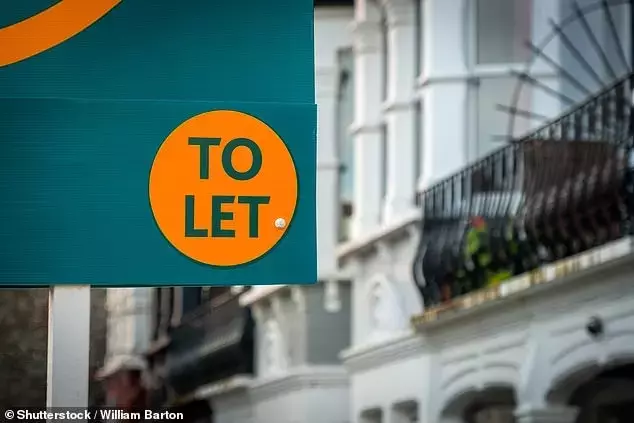
The United Kingdom's rental market witnessed an unprecedented surge in costs during August, with average monthly rents reaching new peak levels. This substantial increase is largely a consequence of dwindling housing availability, as a considerable number of property owners opt to divest their assets. Factors such as heightened tax burdens, more stringent regulatory frameworks, and escalating mortgage expenses have rendered buy-to-let investments less profitable, compelling many to withdraw from the rental sector. This exodus has created a critical shortage of rental units, intensifying competition among prospective tenants and driving up the cost of living for millions.
Data from Rightmove indicates that the typical advertised monthly rental payment climbed to £1,577 last month, marking a 2.9% rise compared to the previous year. Although tenant demand has seen a slight moderation, the dramatic reduction in available properties continues to exert upward pressure on prices. Landlords are increasingly exiting the market, disheartened by policy changes such as the second-home stamp duty surcharge, which significantly increased acquisition costs. Furthermore, impending regulations requiring Energy Performance Certificate (EPC) upgrades to a C band could necessitate substantial investments, adding to their financial strain. Even with a recent slight easing, mortgage rates remain considerably elevated compared to historical lows, disproportionately affecting landlords who face higher borrowing costs than residential homeowners.
The cumulative effect of these financial disincentives and regulatory shifts has compressed rental yields, leading to a noticeable contraction in the rental housing stock. This constriction disproportionately impacts individuals and families who lack the financial means for a down payment on a home, leaving them with limited and increasingly expensive rental options. The North West has been particularly affected, with average advertised rents in the region jumping by 9.7% over the past year to £1,278. Conversely, the North East remains the most affordable, with average monthly payments around £918, while London continues to hold the top spot for highest rents at £2,699, albeit with a more modest 2% annual increase.
Looking ahead, the upcoming Autumn Budget is anticipated to introduce further fiscal measures targeting landlords, with discussions around applying National Insurance to rental income. This potential tax adjustment, combined with the imminent Renters’ Rights Bill, which aims to bolster tenant protections by abolishing no-fault evictions and introducing new property standards, is expected to further reshape the rental landscape. Many property investors express feelings of being unsupported by the government, with a significant portion contemplating reducing their portfolios or selling their properties altogether. This sentiment highlights a growing concern that an over-regulated and heavily taxed rental market could inadvertently exacerbate the housing crisis, ultimately harming the 4.6 million households reliant on private rentals.
The current market dynamics present a complex challenge for both renters and property owners. While tenants face limited choices and record-high costs, landlords contend with an uncertain legislative and financial environment. The continued withdrawal of landlords from the sector due to increasing burdens risks a further escalation of rental prices, making stable and affordable housing an ever-more elusive goal for many. The ongoing debate emphasizes the critical need for policies that balance the interests of both tenants and landlords to ensure a sustainable and accessible rental housing market.
